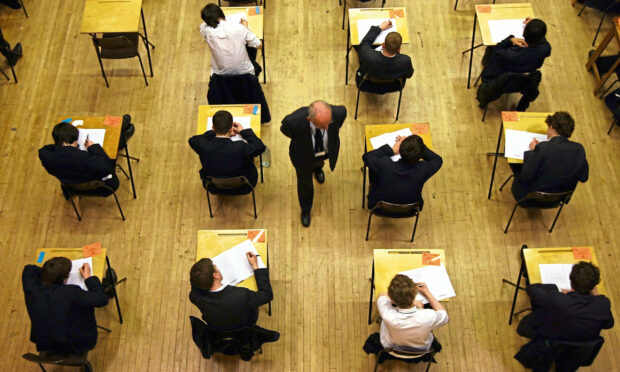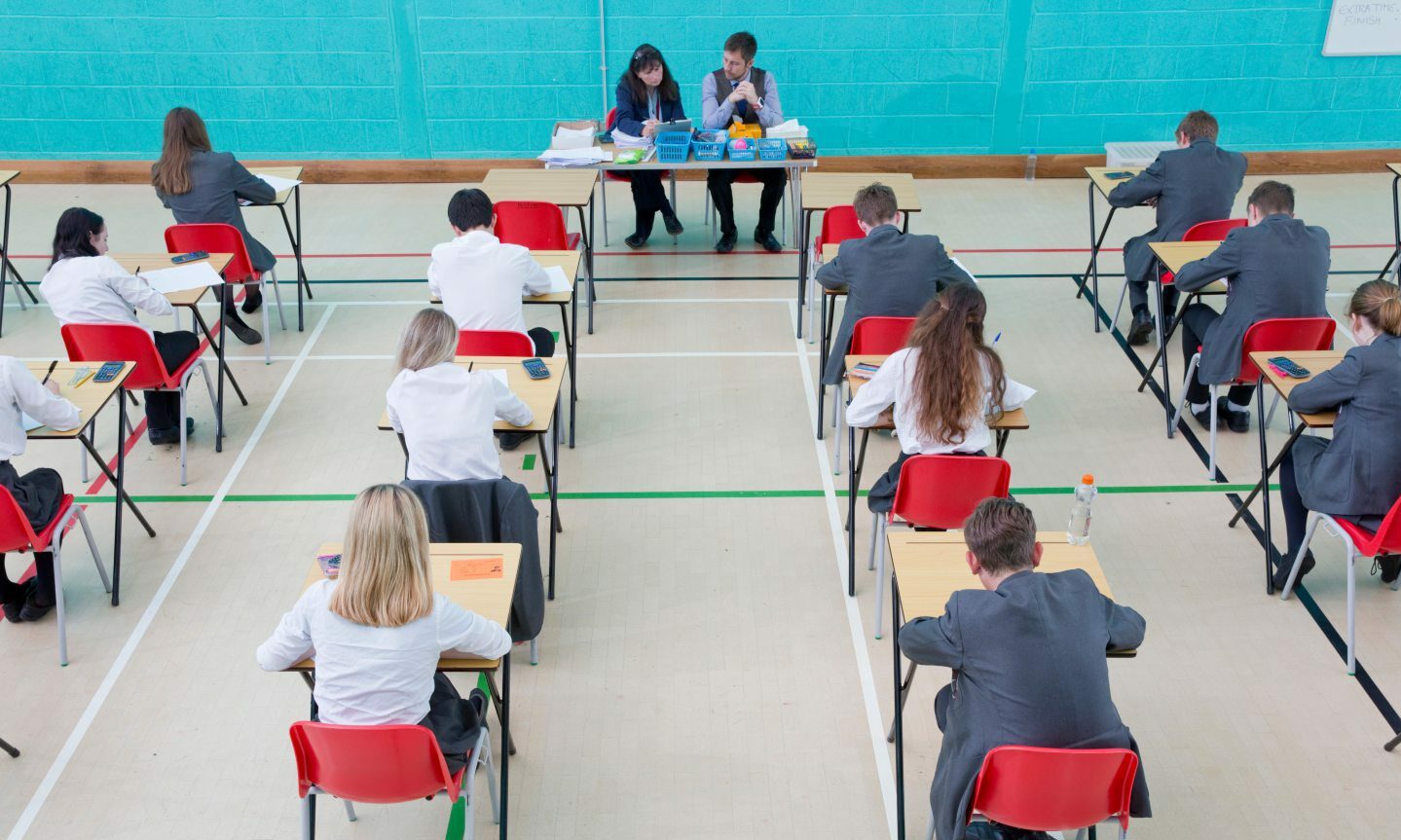I was one of those pupils of the 1970s who grew addicted to school exams – along with the caffeine injections which allowed me to cram arcane snippets of information about history and mathematics, Latin and Greek, into the wee sma’ hours of many mornings.
It was never a pleasant experience swotting up for these annual tests, knowing that your teachers wanted to push as many youngsters as possible through the educational equivalent of a sausage-processing machine en route to university.
And, when I look back at my attempts to remember translations of obscure set books provided by my classics teacher, it was often a case of here-today-gone-tomorrow knowledge, with no useful purpose served by filling my head with Homer’s Odyssey.
Yet, if these lessons occasionally prompted another Homeric cry – D’oh! – there was something about the rigorous exam procedure which mentally prepared me for the fact that stress is an occupational hazard in many vocations and deadlines have to be met.
Fewer exams, more inclusion: Here’s what the new qualifications system has in store
Education shake-up
That is just one of the reasons why I’m concerned about the news that exams for 15 and 16-year-olds in Scotland could be scrapped in a shake-up of the education system.
At the moment, teenagers are required to sit graded exams when they enter the fourth, fifth and sixth year of secondary school.
However, an independent review, commissioned by the Scottish Government and overseen by Prof Louise Hayward, has advocated an alternative vision where pupils have their coursework assessed, as well as a ‘Scottish diploma’ which includes extracurricular activities such as being a member of the Scouts or Girl Guides, participating in sport or undertaking voluntary work.
There’s value, of course, in these latter pursuits and nobody should underestimate the positive impact it would have on many facets of our lives if more pupils were encouraged to get their heads out of their mobile phones and games consoles and actually meet people from different backgrounds and generations – and talk to them.
But exams shouldn’t simply be consigned to the dustbin of history in the process. Because, although they can inflict misery on those who don’t achieve the grades they require and spark genuine trauma for those who struggle from dyslexia, autism and other conditions, the reality is that these tests are a preparation for life. They matter.
How essential are exams?
Even now, the memories of walking into the exam hall, where the invigilator made it clear about the consequences for anybody caught cheating, can induce a few beads of sweat on my brow and there was one occasion where a young girl burst into tears at her desk, whispered: “I can’t do it” and had to be ushered out of the venue by a teacher.
But that morning convinced me that exams are essential. Not just one at the end of the fifth or sixth year – as is being recommended in the new proposals – but on a regular basis, to help students discover whether they are making progress. Coursework and projects are all very well, but you need to test your own mettle beyond being part of a team. And particularly when you have ambitions to forge an independent career.
Once you have left school, it doesn’t matter whether you want to be a doctor or dentist, joiner or journalist; the job will provide challenges. There will be days where you have to come up with rapid solutions to complex problems, think on your feet, trust your instincts and appreciate that you won’t always succeed.
Conrad Ritchie, businessman
Leading north-east businessman, Conrad Ritchie, the global vice-president of EXS Group, said: “We have seen exam pass marks lowered in the past in an effort to mask the problem and now we have a government that is preparing to scrap exams in Scottish schools, but the very idea is utter nonsense.
“The minds of our youth need to be stimulated because we only improve by pushing and testing ourselves, this is the foundation of learning and the basis on which people can become the best they can be at their individual level of ability.
“Ability is one thing, but application and effort should be equal across the spectrum and removing the opportunity to prove one’s ability is as huge step backwards”.
“When it comes to ability, we cannot tar everyone with the same brush, we can’t all be superstars but we should all be given the opportunity and assistance to be the best we can be.
“We must be able to test in order to find out where the assistance is required to allow youth to flourish , the result of scrapping exams will create further generations of underperformers which is huge injustice to our collective futures.
“The very idea of scrapping exams should itself be scrapped immediately.”
RGU Professor Sarah Pedersen
Prof Sarah Pedersen of RGU understands the rationale behind the new proposals and said: “It is clear that exams can cause extreme stress and anxiety, which is why there has been a gradual move away from them in schools, colleges and universities.
“In some subjects, such as English literature for example, exams tend to test the ability to memorise chunks of text and regurgitate it appropriately.
“It is far better, in my opinion, to use open-book exams for such subjects, which allows you to consult reference materials as you write, giving perhaps a day to put together an essay. This tests students’ critical thinking abilities rather than their memory.”
However, she added: “Nonetheless, there are positive aspects to exams, particularly in relation to preparation for the world outside education.
“The ability to put together a coherent and persuasive argument in a short amount of time under pressure is one that is necessary for many careers.”
This is one argument which isn’t going away.














